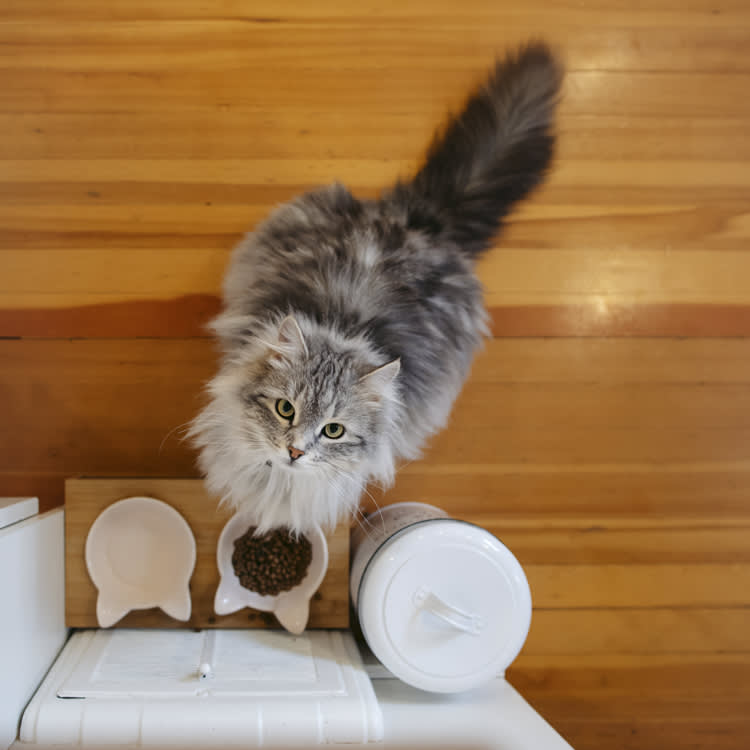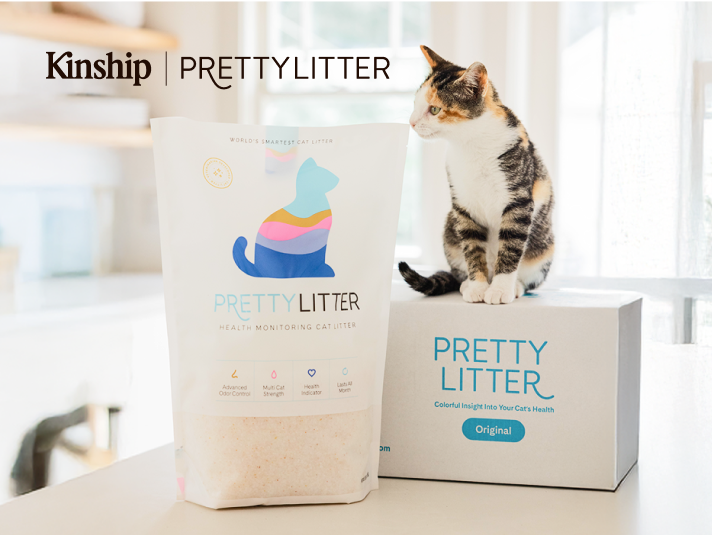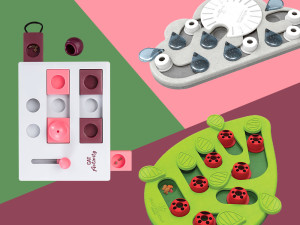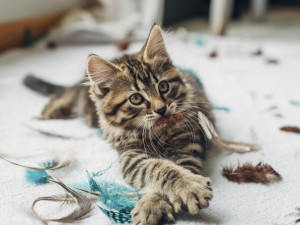“Freeloading” Cats Won’t Work for Food
Cats prefer to be served, study says.
Given a choice between free food and doing a simple task for food, most animals, like dogs, will do the work. This is called contrafreeloading and has been known since the 1970s. But cats are different. Do you think cats became our fluffy overlords by working for food? Nah, unlike most animals, cats prefer to be served.
According to a studyopens in new tab, researchers offered 18 house cats a choice between a food puzzle and a tray of free food. Cats ate more from the free tray and spent more time on the free food, they found. “It wasn’t that the cats never used the food puzzle, they just used it less, ate less food from it, and typically would eat from the freely available food first,” says Dr. Mikel Delgado, PhD, certified cat behaviorist, and coauthor of the study.
Save on the litter with color-changing tech that helps you better care for your cat.
Four cats who appeared to be contrafreeloaders had one trait in common — they ate most of the food available to them during trials. Cats who consumed more food from the puzzle, consumed more food in general, suggesting a relationship between hunger and effort. This might seem like a no-brainer to us but it makes cats an exception when compared to rats, mice, gerbils, birds, dogs, chimpanzees, and other animals both wild and domestic that have been tested over the years.
Although contrafreeloading has been recognized for almost 50 years, there is still no single theory to explain it. “There are different theories about why animals might [work for their food], including boredom in captive environments, simulating natural foraging behaviors, and creating a sense of control over the environment and outcomes,” says Dr. Delgado.
How much do you spend on your pet per year?
It’s also not clear why cats don’t do it, but Dr. Delgado has a hunch: Perhaps because it does not simulate natural hunting behavior. But cats can and do use food puzzles. In fact, in a previous studyopens in new tab, Dr. Delgado and colleagues found that 30% of cat parents said their pets used and enjoyed food puzzles (perhaps they weren’t getting any handouts).
“Before cats were domesticated, they lived in the wild where they hunted for food,” says Dr. Delgado. “Then humans came along and took their jobs away.” Food puzzles can provide an important enrichment activity for cats, which may improve their welfare by increasing mental stimulation. Her professional opinion? She suggests pet parents toss the cat bowls and make their cats return to work. Not what your cat wanted to hear.
[Source: UC Davisopens in new tab]




